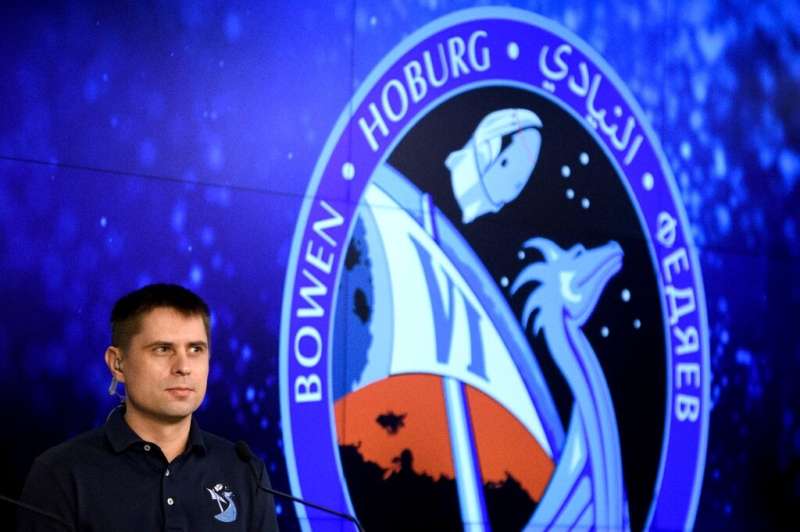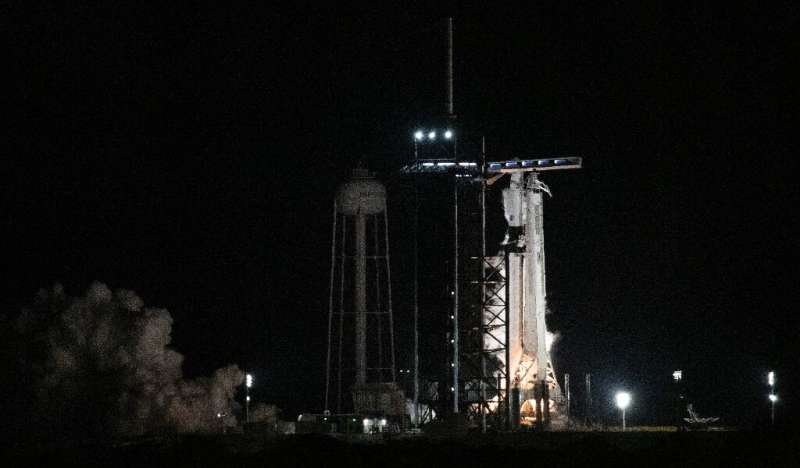Neyadi described the upcoming mission as a "great honor."
Hoburg, the Endeavour pilot, and Fedyaev, the Russian mission specialist, will also be making their first space flights.
Fedyaev is the second Russian cosmonaut to fly to the ISS aboard a SpaceX rocket. NASA astronauts fly regularly to the station on Russian Soyuz capsules.
Space has remained a rare venue of cooperation between Moscow and Washington since the Russian offensive in Ukraine placed the two capitals in sharp opposition.
Such exchanges have continued despite those tensions.
Bowen, a veteran of three space shuttle missions, said politics rarely come up while in space.

"We're all professionals. We keep focused on the mission itself," the mission commander said. "It's always been a great relationship we've had with cosmonauts once we get to space."
While aboard the ISS, the Crew-6 members will conduct dozens of experiments including studying how materials burn in microgravity and researching heart, brain and cartilage functions.
The current crew is the sixth to be transported by a SpaceX rocket to the ISS. The Endeavour capsule has flown into space three times.
NASA pays the private SpaceX company to ferry astronauts to the flying laboratory roughly every six months.
The space agency expects Crew-6 to have a handover of several days with the four members of the SpaceX Dragon Crew-5, who have been stationed on the ISS since October. Crew-5 will then return to Earth.
Rescue capsule
Also currently aboard the ISS are Russian cosmonauts Dmitry Petelin and Sergei Prokopyev, as well as NASA astronaut Frank Rubio.
They had been scheduled to return home on March 28 but the cooling system of their Soyuz MS-22 capsule was damaged by a tiny meteoroid in mid-December while docked with the ISS.
An uncrewed Russian Soyuz capsule, MS-23, took off on Friday from Kazakhstan to bring the three astronauts home. They are now scheduled to return to Earth in September.
The ISS was launched in 1998 at a time of increased US-Russia cooperation following the Cold War space race.
Russia has been using the aging but reliable Soyuz capsules to ferry astronauts into space since the 1960s.
But in recent years, Russia's space program has been beset by a litany of problems that have led to the loss of satellites and vehicles.
© 2023 AFP



